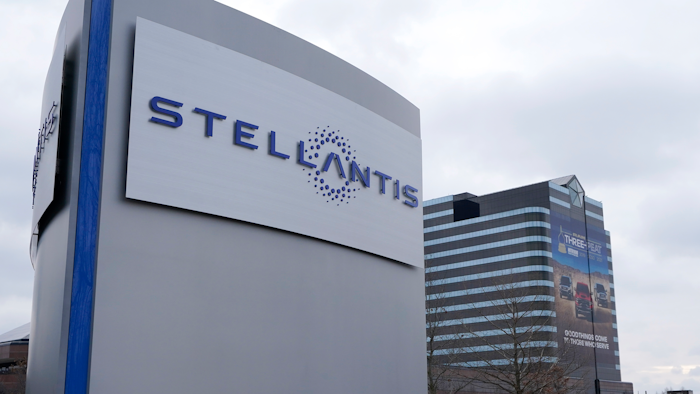Stellantis, LG to Make Electric Vehicle Batteries in Ontario
[ad_1]

It’s expected to open early in 2024 and will be able to make battery cells and modules for over 500,000 electric vehicles per year.
AP Photo/Carlos Osorio, File
DETROIT (AP) — A joint venture between Stellantis and South Korea’s LG Energy Solution plans to build a large electric vehicle battery factory in Windsor, Ontario, employing about 2,500 people just across a river from Detroit.
The venture plans to spend $4.1 billion ($5 billion Canadian) to build the new plant on a field in the Canadian city. It’s expected to open early in 2024 and will be able to make battery cells and modules for over 500,000 electric vehicles per year.
The plant will supply batteries for a “significant portion” of Stellantis’ North American production, the companies said in a statement Wednesday. Stellantis has said the venture plans to build two battery factories in North America. The other location has not been announced.
The companies said in a statement that municipal, provincial and federal levels of the Canadian government are supporting the joint venture, but it gave no details of tax breaks or other incentives.
The automaker, formed last year with the merger of Fiat Chrysler and France’s PSA Peugeot, is the world’s fourth-largest automaker. It has announced plans to sell 5 million electric vehicles by 2030, with 50% of its North American passenger car and light truck sales going fully electric by 2030. Stellantis plans to sell 100% electric passenger cars in Europe by 2030.
Stellantis has announced that its existing minivan factory in Windsor will build an electric vehicle, but hasn’t given other details of where new EV models will be made.
LG Energy Solutions has announced plans to spend $4.6 billion on battery factories in North America. On Tuesday it announced plans for a $1.7 billion expansion in western Michigan that will add up to 1,200 jobs by 2025, officials announced Tuesday.
The project at the company’s site in Holland, located about 155 miles (249 kilometers) northwest of Detroit, was approved for $56.5 million in state grants and a 20-year tax break worth $132.6 million.
[ad_2]
Source link










